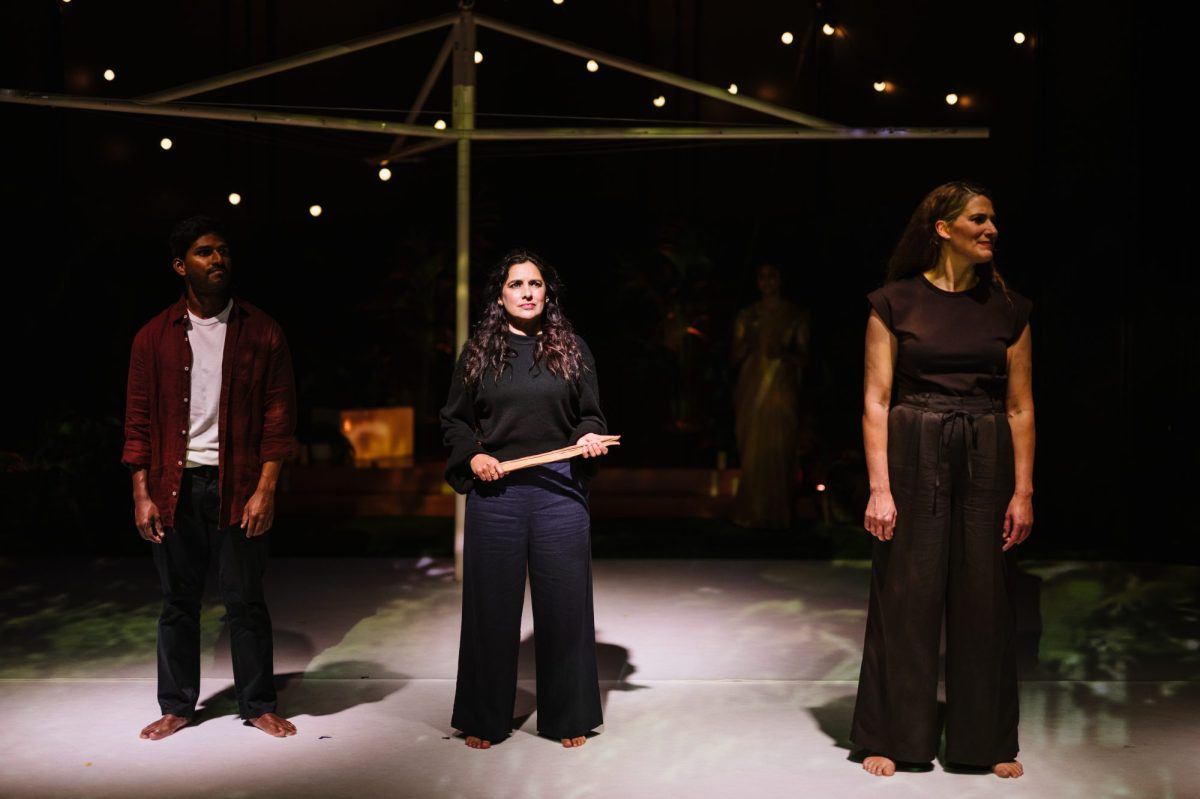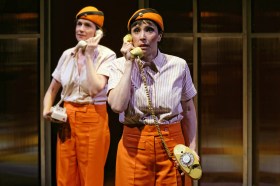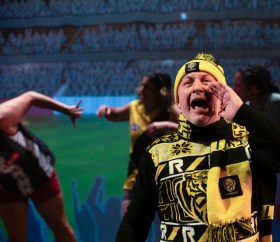Back to Bilo – quick links
While many of us are familiar with the broader strokes of Priya and Nades Nadesalingam’s story and their connection to the Queensland town of Biloela, Belloo Creative’s Back to Bilo brings a fresh perspective to their story.
Presented by Brisbane Festival and Queensland Theatre, written by Belloo’s Katherine Lyall-Watson and directed by Caroline Dunphy, Back to Bilo is a powerful piece of theatre with connection, care and community at its core.
Award-winning Belloo Creative specialise is bringing untold stories to the stage through community collaboration, and it is evident that this approach has been taken by Lyall-Watson and Dunphy with Back to Bilo.
Back to Bilo: backed by Priya and Nades
Developed over four years, the production has the backing of Priya and Nades, the Sri Lankan Tamil asylum seekers whose effort to remain in Australia with their two locally-born daughters was a major story for years, as well as the Biloela locals who fought for their return.
Matt Sholten originally conceived of the work as a piece of verbatim theatre, in which the real words of the subjects are recorded and used, often without being altered. This idea was developed in consultation with campaigners in Biloela before Lyall-Watson came on as writer. The result is a powerful production that stands as witness to the horrors inflicted on asylum seekers.
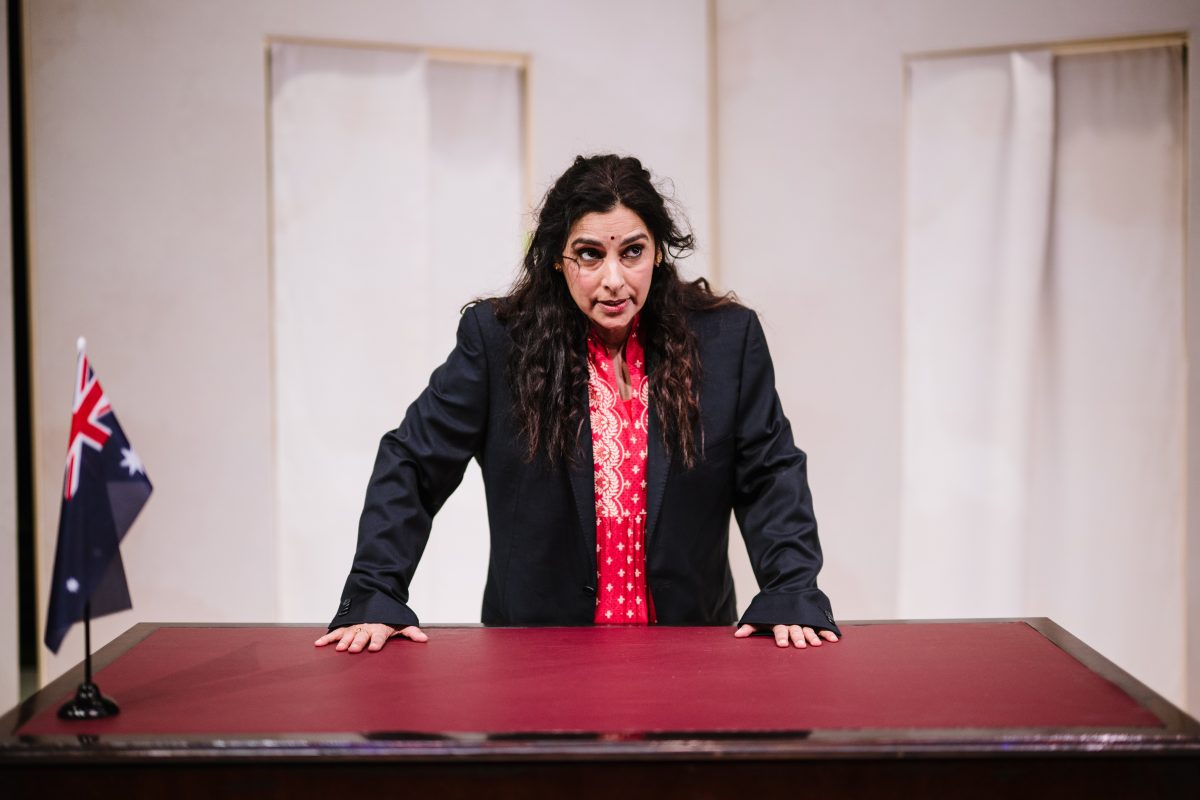
From the outset, the depth of collaboration and care taken with the Nadesalingam’s story is evident. Tamil cultural and language consultant Vashini Jayakumar and Tamil cultural consultant Sudhesh Somu have clearly played key roles in bringing this work to the stage, with Vashini appearing in several videos projected onto the stage.
Tamil culture is woven throughout the production, with composer and performer Menaka Thomas signing live in both Tamil and English, anchoring many of the scenes in the culture of the protagonists.
Back to Bilo: Sri Lanka to Biloela
Back to Bilo begins in Sri Lanka, with Priya (Leah Vandenberg) and Nades (Matt Domingo) narrating their early lives during the country’s long civil war. Once in Australia, Nades moves to Biloela, a ‘speck’ of a town in regional Queensland.
He takes on two jobs, quickly establishing himself as part of the local community. After Priya and Nades are introduced, they marry, then welcome two daughters, Kopika and Tharnicaa, both born in Biloela, or Bilo as it is affectionately known.
A key group of Bilo locals and ex-locals emerge on the stage alongside Priya and Nades—Bronwyn (Liz Buchanan), Simone (Sarah McIntosh) and Angela (Erika Naddei). These three characters stand in as the leaders of the grassroots ‘Home to Bilo’ campaign, started after the Nadesalingam family are taken into immigration detention in a dawn raid.
Against a simple set, the voices of the real-life characters are given space to take centre stage in roles the actors excel in. The cast of five show themselves to be adept at playing multiple roles, often taking on minor characters.
To further highlight the reality of the situation that the Nadesalingams were placed under, the actors also break character altogether to deliver factual information directly to the audience.
Videography forms a key aspect of the staging, with interviews, news stories and landscapes projected onto the stage. After one particularly harrowing video is played, loud sobs can be heard from the audience. The production shines in this retrospect as it never veers into the melodramatic or didactic, instead favouring a realistic and careful handling of difficult subject matter.
Back to Bilo: more than a celebration
Thankfully, Back to Bilo doesn’t shy away from other realities of the story. The production is not just a celebration of the good people of regional Queensland, or wider Australia – the dissenting voices of politicians and local critics are also heard.
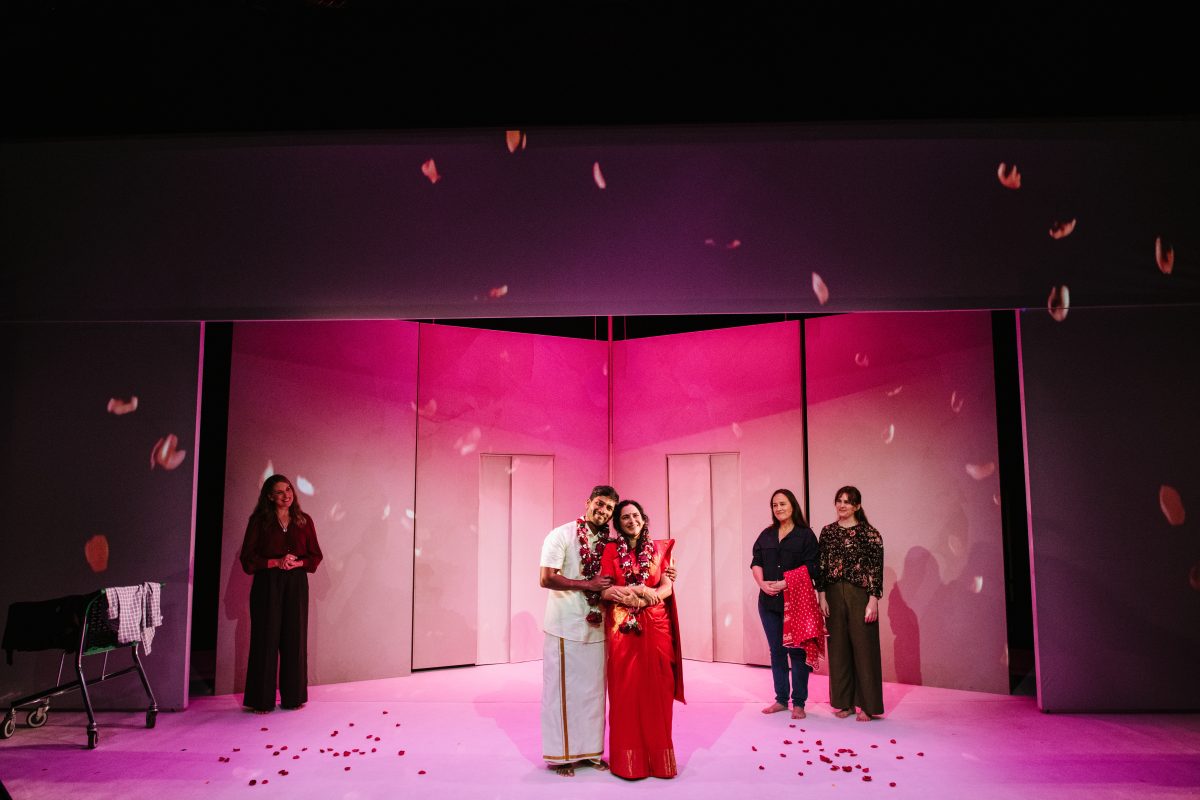
And the harsh realities of Australia’s immigration detention system are held up to the light, with the family seen to be facing mistreatment or, at best, indifference by guards, police and politicians.
That’s not to say that there aren’t moments of lightness in the 70-minute production, particularly when the actors break character and take on some of the same politicians who had so much to say about this family when they were in detention.
It is fitting that Back to Bilo is premiering as part of the 2025 Brisbane Festival, with a story that centres the voices of asylum seekers at a time as relevant as it has ever been. As testament to the resilience and power of the community that inspired the work, the production received a standing ovation on opening night, as Priya, Nades, Vashini and the Biloela locals emerged from the audience to take to the stage with the cast and creatives.
Back to Bilo is a powerful reminder of what it means to call a place home, and what can be achieved when real people come together and advocate for change.
